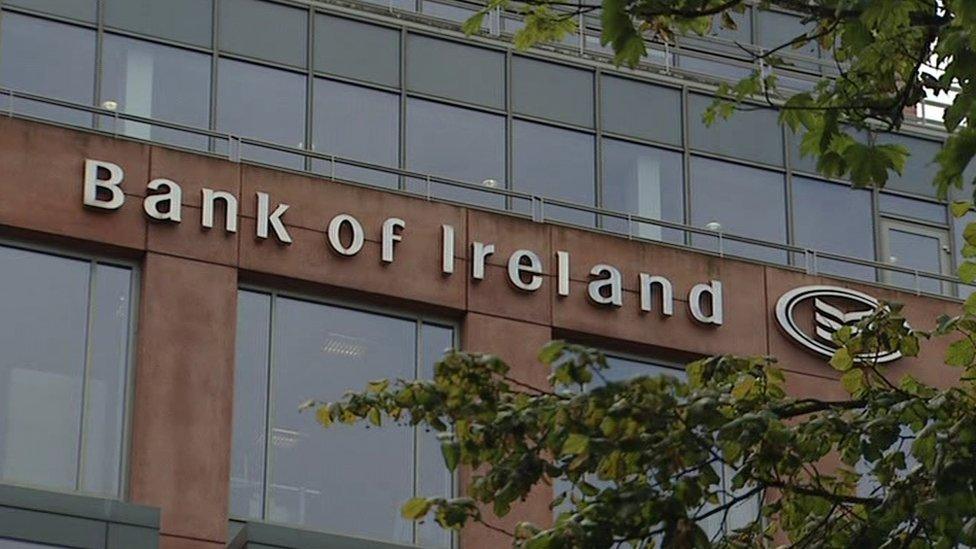Bank of Ireland makes pre-tax profit of €1bn
- Published

The bank's UK retail division, which includes its Northern Ireland business, saw its profit fall almost 30% from £167m to £117m
Bank of Ireland made a pre-tax profit of just over €1bn (£860m) in the first half of 2023, an increase of 192% on the same period last year.
However the bank's UK retail division, which includes its Northern Ireland business, saw its profit fall almost 30%, from £167m to £117m.
That was mainly due to more money being set aside to cover potentially bad loans.
The bank said this reflects the current macroeconomic environment.
That includes the impact of rising UK interest rates and inflationary pressures on customers.
The bank said it is also pursuing a UK strategy of "value rather than volume", meaning it is targeting only more profitable lending opportunities, particularly in mortgages.
Aside from the Northern Ireland business, its UK operations include the Northridge car finance business and joint ventures with the Post Office and AA.
The bank's profit growth was concentrated in its Republic of Ireland retail business and it corporate and markets division.
Rising interest rates are generally good for bank profits.

The bank's UK retail division saw its profit fall almost 30% - mainly due to more money being set aside to cover potentially bad loans
They enable banks to increase the "spread" between what they charge borrowers and pay to savers.
That spread is known as the net interest margin (NIM) and at Bank of Ireland it increased from 1.73% to 2.96% over the year.
The bank's chief executive Myles O'Grady said: "We are mindful of the significant change in the interest rate environment and the impact this has on customers.
"Our objective is to maintain a balanced approach as we pass on interest rates to both loan and deposit customers, balancing affordability for mortgage customers while offering value to depositors."
Mr O'Grady said the Irish economy was "relatively well positioned for these more uncertain times", with a strong labour market and levels of household and corporate debt which are far below peak levels.
He added that the UK outlook is "more uncertain, with inflation more persistent than earlier estimates and interest rate expectations adjusting accordingly".
Related topics
- Published28 February 2022

- Published27 April 2022
